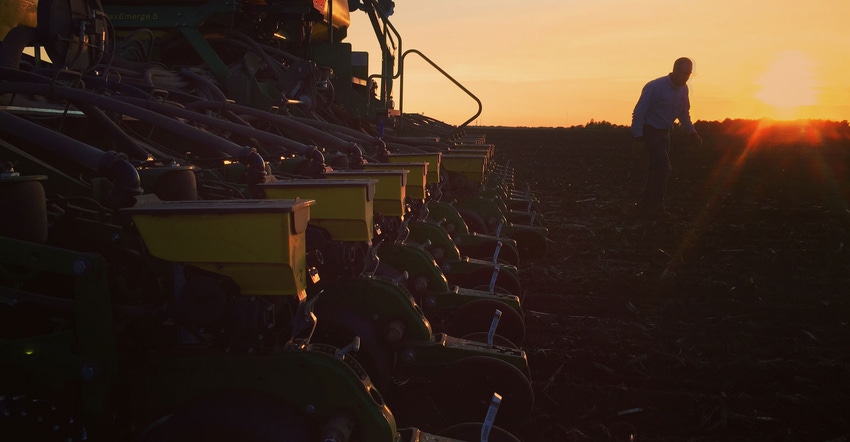September 20, 2018

Ted Matthews is supposed to be helping farmers in Minnesota. Trying to convince them there’s hope. That their death isn’t the answer to their problems.
“But it’s scary how many calls I get from all over the country,” he says.
Just the week before we talked, he’d taken calls from farm families in Utah and Minnesota. “Both had family members who’d committed suicide, and the family was trying to figure out how to survive that.”
And when he gets a call from an actual farmer contemplating suicide, you can bet that farmer didn’t call on his own.
“First the vet called. Then I told the vet to have the son call. I explained to the son how to talk to the dad, to have him call me. He did. We talked, and things got better.”
Ted is something of a one-man band. He’s a counselor by training who became a crisis interventionist; then by way of the 1993 floods, he began working with farmers on behalf of the state of Minnesota. Today, his title is director of rural mental health, and if you call his number — 320-266-2390 — he may be your last best resort as someone who understands agriculture and desperate times and knows how to help.
Where we’re at
You know you’ve got a problem when even the general media begins to report on the rate of farmer suicides. When the world beyond our farms starts to pay attention to the stress we’re all under.
But what’s changed? “The total sense of helplessness,” Ted says.
Take milk. If someone offers you $12 per cwt, what choice do you have? It’s perishable. Prices for all commodities fluctuate wildly compared to a few years ago. And there’s nothing the farmer can do about it.
Helplessness is what Ted hears in the people he talks to. “They’re thinking, ‘What can I do?’ And there’s no answer to that.”
Take grain. “Prices are all over, and they try to figure out if they can sell or hold, and should they? They’re either morons or brilliant, depending on which day they sold it,” he says.
Layer low-price swings on top of normal farm pressure such as weather, planting, harvest, bank loans, Japanese beetles and whatever else you can’t control, and it’s no wonder farmers are, as Ted says, at a tipping point.
Questions and answers
What’s the answer? I wish we knew.
We know a lot about what doesn’t work. In the wake of every celebrity suicide, waves of people say, “I’m here for you — reach out to me.”
But Ted says it doesn’t work to tell someone they should pick up a phone and ask for help — or to expect them to help themselves. That’s the nature of depression. In Ted’s experience, the people who call him are the spouse, the son, the daughter, or the veterinarian who just left the farm, and they say, “There’s something not right here. Please talk to them.”
And when a farmer does actually reach out to someone, that person needs to understand farming and not say things like, “Why don’t you just sell the farm?” We published a few hotlines last month, but most aren’t staffed with people who understand what it is to be the sixth-generation farmer who might lose it all.
“If a therapist says that, you can guarantee the farmer won’t tell them anything else,” Ted says.
“With a farmer, the reason they have a value is because of the equity in their land. Their land is their life. Sell your land? You’re selling your life, who you are. You can’t do that. It’s a horrible thing to say to a farmer.”
Ted says the best thing you can do for a farmer who’s hurting and feeling desperate is be aware, pay attention and help them get help. Make it a why not, rather than a why: If your tractor’s broken down, you call the repair shop — they’re better at fixing it. If you need tax help, you call an accountant. Same reason.
If you’re feeling low? “Let’s call Ted. He knows more about this than we do.”
Ted’s goal at the end of a call is to get someone to understand that trying to make it better may be the best you can do. “Better doesn’t mean good. It just means better. It might mean it really sucked before and now it just sucks.”
There’s a lot of life between happy and sad. We’re praying every farmer can find that.
Comments? Email [email protected].
You May Also Like




